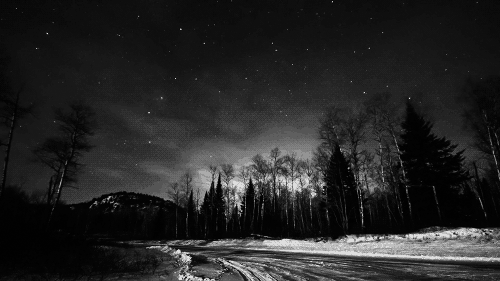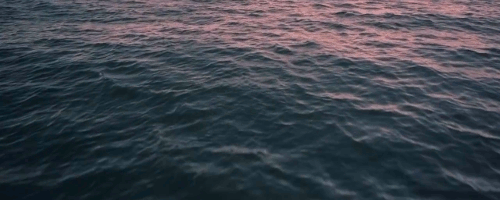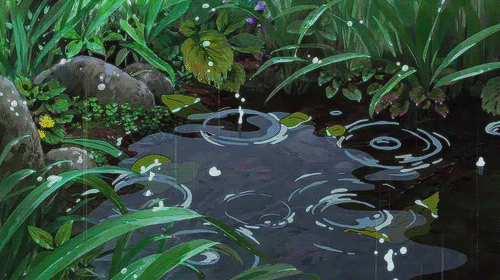It feels very silly to talk about poetry at a time like this, but of course it isn’t. I thought about looking for a poem that seemed more situationally appropriate, but you know what? This is fine. This is a Russian poet writing in the early 20th century (annoyingly, I have returned the book to the library and the internet is failing me at digging up a year for this poem) and for all that was happening, in Russia and the world, she wrote of love lost and despair. Here we go.
On a White Night, trans. Mary Maddock
I didn’t bolt the door
or light the candle.
Though tired I don’t know why
I decided not to lie down.
I am watching the spruce needles
blur in the darkening sun
and I’m getting drunk on a voice
like yours.
Nothing is any good now.
I know it. Hell is here.
I was so sure
you would have come by now.

I can only say so much about translation of this particular poem because I neither have the Russian original on hand nor speak a lick of Russian.
In searching for a version I could copy into this post, I realized the translation I had read, from a book, was significantly different from what I found online. (And the online versions I found didn’t have translation credits, which infuriated me.) Looking at the differences in translation is another, sideways look at how translation works or doesn’t work. So let’s do this.
#
http://www.poemhunter.com/best-poems/anna-akhmatova/white-night-2/
Web translation one: Kind of terrible! The stanzas seem mixed up. I’m not sure why they use “haven’t the strength” to go to bed, when the Maddock translation chooses “I don’t know why.” How do two translations of the same source end up so different? Which is it?
This one also moves “drunk on a voice” to the very end, which is what I mean by mixed up stanzas. And it’s your voice, not a voice like yours in this translation.
And, pettily, I think “pine-needles” is a poor choice in the face of “spruce needles.”
To sum up: This translation is weird and I deny it.
#
https://americanliterature.com/author/anna-akhmatova/poem/white-night
Web translation two: This one at least seems to hew to the original’s (I’m assuming, at this point) stanza and line structure. But the choice of words changes the narrator, changes the voice and the character. Oh, she says. See, she says. Qualifying. Opening. Easing into the line. The unusual phrasing of “I’ve not” done this or that. Who says that? (Me.) No, we say “I haven’t,” so the departure says something. It feels old fashioned to me, almost staged. Or over-educated. Putting something on.
This speaker sounds more immediate, like she’s talking to someone, trying to get and keep their attention. The Oh, the See how the fields. Oh, listen to her. You know I’m too tired, you know it. Look, look at the fields with me. Be with me, right now, looking at dying light and gloom.
I’m not sure I like it.
I definitely don’t like the way the final stanza rhymes. Eugh. Inappropriate.
Anyway, in the last stanza the translator uses em-dashes. And uses them oddly, in the second line of that stanza. But I bring it up because in the book I was reading, there was an introduction. That introduction talked about each of the three poets included, their styles, and how they influenced each other and were different from each other. The translator talked about the immediacy of one of the poets, the “great poetic energy, her elliptic and staccato style.” Even in introducing her, the em-dash suddenly appeared, as though out of nowhere, and then vanished again when another poet was discussed.
The em-dash poet was Marina Tsvetayeva. So you see why I notice it in the translation of Akhmatova.
#
Can we talk briefly about why I like this poem? I didn’t discover the translations, then choose the poem. I chose the poem first. I had four poems by Akhmatova marked as I read. This was the first sequentially, and I suppose that’s the reason I chose it over any of the others.
This translation chooses bolt the door, more telling, more physical, more weighty, more final than a simple lock.
In this poem, there is only one candle, one possible light, one wick against the darkness.
This poem has not sunset, beautiful and fiery, but a sun that darkens. The sun doesn’t set. It burns out and grows cold.
This poem has you not here at all, has you not even echoing; this poem has you gone, and replaced.
In this one, nothing is fine. In this one, the sentences shorten and deaden and stop for a moment, in Hell. In this one, you haven’t come, and that is the most important part, not her certainty. You haven’t come, and the night is growing dark.
#
If you have thoughts on this poem, please share them! you’re probably smarter than I am.
Also, poetry recommendations are always welcome.


